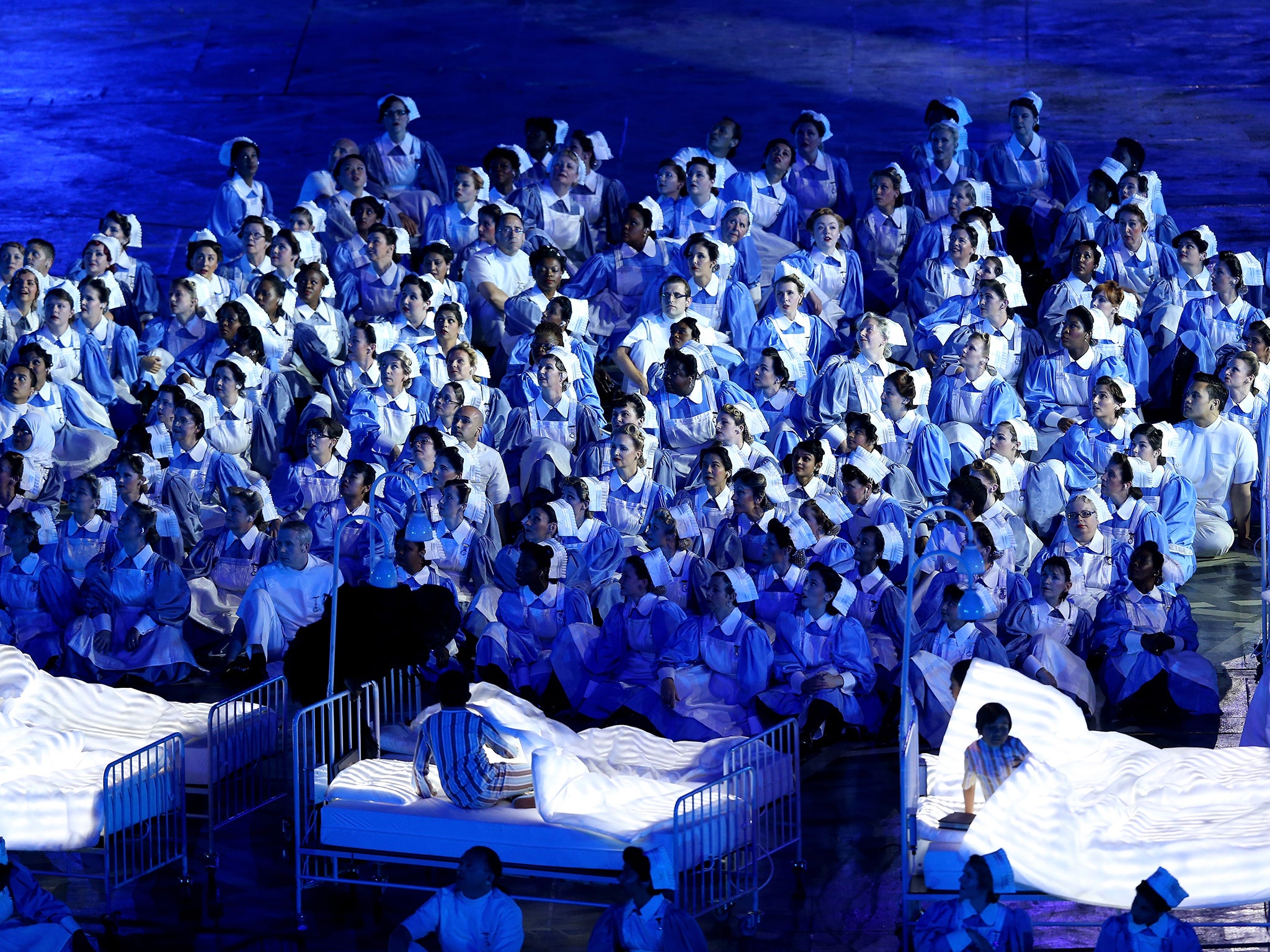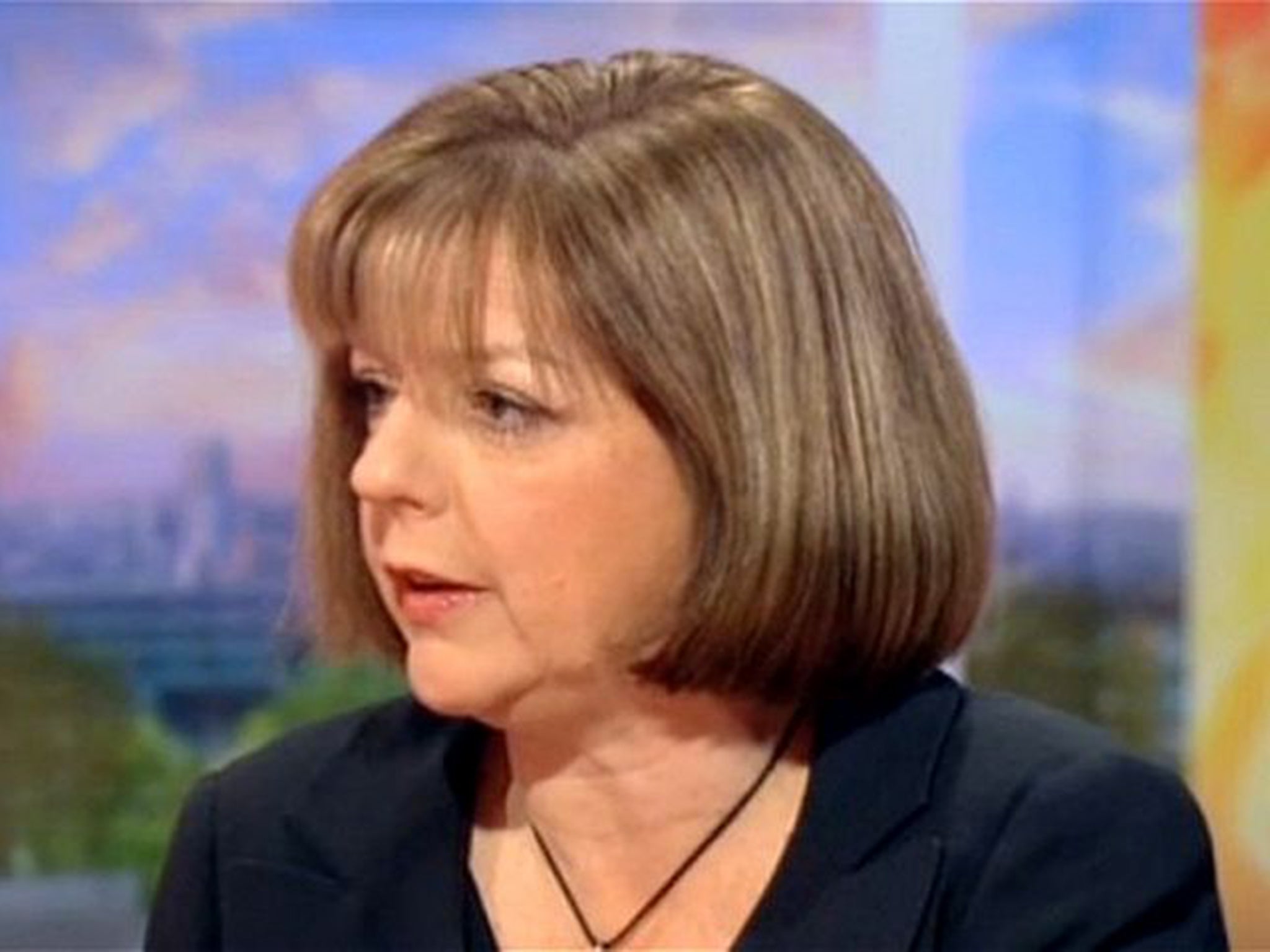NHS staffing shortages: Restrictions on recruiting nurses from overseas to be temporarily lifted
Nurses from outside the European Economic Area (EEA) will have their work visa applications prioritised

Your support helps us to tell the story
From reproductive rights to climate change to Big Tech, The Independent is on the ground when the story is developing. Whether it's investigating the financials of Elon Musk's pro-Trump PAC or producing our latest documentary, 'The A Word', which shines a light on the American women fighting for reproductive rights, we know how important it is to parse out the facts from the messaging.
At such a critical moment in US history, we need reporters on the ground. Your donation allows us to keep sending journalists to speak to both sides of the story.
The Independent is trusted by Americans across the entire political spectrum. And unlike many other quality news outlets, we choose not to lock Americans out of our reporting and analysis with paywalls. We believe quality journalism should be available to everyone, paid for by those who can afford it.
Your support makes all the difference.Restrictions on the NHS recruiting nurses from overseas have been temporarily lifted after warnings that a crisis in medical staffing is looming this winter.
Nurses will be added to the Government’s shortage occupation list, which means nurses from outside the European Economic Area (EEA) will have their work visa applications prioritised.
The announcement comes after senior NHS figures warned that “stringent” immigration rules – the Government insists it still wants to meet its target of 100,000 arrivals per year, despite current figures running more than three times higher – were preventing them from recruiting enough nurses.
The NHS Employers organisation and the heads of 10 leading trusts wrote to the Home Secretary about their concerns; and Simon Stevens, head of NHS England, warned this month that “we need to better join up the dots on immigration policy and the NHS”.
He said nurses should not be covered by rules under which workers from outside the EEA are deported if they are earning less than £35,000 after six years in the UK; among such workers set to be sent home by 2020 are 7,000 overseas nurses, the Royal College of Nursing says.

“Most hospitals tell me that the idea that we would seriously consider deporting some of our most experienced and committed nurses solely because they’re not earning £35,000 clearly needs a rethink,” said Mr Stevens.
NHS Employers has said 1,000 certificates of sponsorship, which allow nurses from outside Europe to work in the UK, will be needed in the next six months.
The Department of Health said the policy change was designed to ease pressure on the NHS at a time when the Government has introduced a cap on NHS trusts hiring expensive agency staff.
Janet Davies, chief executive of the Royal College of Nursing, said: “This reversal is a real victory for nurses, the health service and most of all for patients.
“Since the RCN first raised this issue and lobbied for a change to the immigration rules, a consensus has formed across the health service that cutting the supply of overseas nurses risked patient care.
“The Government must now extend this commonsense approach to the issue of training and retaining more nurses in the long term and significantly increasing student nurse training places so that patients in the UK are no longer at the mercy of global workforce trends.”
Jane Cummings, England’s chief nursing officer, said: “Last week Simon Stevens called on the Government to urgently rethink counterproductive restrictions on the NHS’s ability to recruit nurses internationally, and today we welcome this outbreak of common sense.
“Nurses and other health professionals from overseas have always played an important role in our NHS. This change means that we can recruit and no longer face the potential loss of some of our most experienced and committed nurses.”
The temporary change will be subject to review by the independent Migration Advisory Committee, which will present further evidence to the Government by next February.
According to the Government, Health Education England has increased nurse training places by 14 per cent over the past two years and are forecasting that more than 23,000 extra nurses will be in place by 2019.
The Health Secretary, Jeremy Hunt, said: “Safe staffing across all our hospitals and care homes is a crucial priority.
“The temporary changes announced today will ensure the NHS has the nurses it needs to deliver the highest standards of care without having to rely on rip-off staffing agencies that cost the taxpayer billions of pounds a year.
“We are also recruiting more home-grown nurses than ever to deliver a truly seven-day NHS.
“There are already more than 8,000 additional nurses on our wards since 2010 and we are investing in our future workforce, with a record 50,000 nurses currently in training.”
Dave Prentis, general secretary of Unison, said current staffing levels were too low in many areas. “At long last, the Government has realised just how much the NHS relies on its migrant nurses,” he said.
“By cutting the number of student nurse places, ministers created a serious recruitment crisis in the heath service. And that is why NHS trusts have been forced to recruit from outside the EU for the last two years.”
'Grotesque’: Judge’s verdict on passport case
A High Court judge that was asked to rule on a passport dispute between Home Secretary Theresa May and a 45-year-old woman who was born in India has described the conduct of the UK Government as “grotesque”.
Mr Justice Walker concluded yesterday that Deelavathi Bondada – whose application for a passport had been rejected – was a “British citizen by descent,” having analysed “crucial issues” about her date of birth and her parents’ marital status.
He also made complaints in a written ruling on the case following a High Court hearing in London, saying officials had “refused to engage with compelling DNA evidence”.
He said the Home Office argument “effectively made an accusation that [Ms Bondada’s] mother has lied about the patronage of her children for more than 60 years”.
Mr Justice Walker said this “stance taken on behalf of the Home Secretary” during the case – “without a shred of evidence” – could not be described as “honourable”, and that “untenable objections” had been made against Ms Bondada’s citizenship.
Join our commenting forum
Join thought-provoking conversations, follow other Independent readers and see their replies
Comments